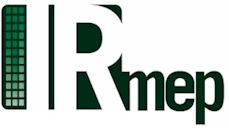UPDATED: April 22, 2020IRmep filed a federal lawsuit (PDF) to compel the IRS to release records related to the ongoing, long term laundering of tax-exempt donations by American donors through charitable organizations to which the IRS has issued determination letters, into illegal Israeli settlements, thereby directly and indirectly engaging in ethnic cleansing, illegal land seizures, and other expeditions against a friendly nation in violation of 18 U.S. Code § 960 and other applicable statutes and treaties. The lawsuit was filed under the Freedom of Information Act.
The IRS has long tried to avoid formal comment on the massive and ongoing transfer of U.S. tax-exempt charitable funding into overseas activities that have no apparent legality, charitable purpose, or social welfare benefit. However, the persistence of the funding flows and very large amounts involved have generated mainstream news coverage, lawsuits, numerous requests for clarity to the IRS. Most have failed to produce any clarity or redress.
In the 1982 lawsuit Khalaf v. Regan a group of individuals
challenged the tax-exempt status of organizations supporting
Israeli settlement efforts in the West Bank, but their legal
bid fizzled. In the year 2005 USA Today reported that $50
billion had been raised, much of it likely in the United
States in tax-exempt charitable contributions, only to be
transferred overseas to build illegal settlements in the
Israeli-occupied West Bank. “In email correspondence produced in discovery, a Treasury Department employee stationed in Israel asked the IRS in spring 2009, at the request of a State Department employee, whether organizations’ tax-exempt status could be revoked for funding Israelis settlements in the West Bank. The Treasury Department employee asked whether such activity could be deemed illegal or in violation of established public policy based on executive branch policy as stated in a 2005 Congressional Research Service report that no U.S. assistance to Israel can be used in the occupied territories because the United States does not want to foster the appearance of endorsing Israel’s annexation of the territories without negotiations. The Treasury Department employee further asked whether this would be enough to revoke the tax-exempt status of organizations that provide funds to ‘Israeli occupied territories.’ As reflected in email correspondence produced in discovery, a number of IRS employees evaluated the questions raised by the Treasury Department employee in an effort to respond to the inquiry. An IRS employee ultimately referred the Treasury Department employee to the IRS hotline for reporting violations of the Internal Revenue laws.” In July 2019, just before suing the IRS, the Plaintiff publicly asked IRS National Taxpayer Advocate Nina Olson on C-SPAN’s Washington Journal to explain official IRS policy toward funds laundered through tax exempt charities into illegal settlements. Like former IRS commissioner Shulman, Olson dodged and did not substantively respond to the question. LEGAL DOCUMENTS
Joint Status
Report II (PDF) "Nearly a year has elapsed since
Plaintiff filed the first FOIA for this material.
The last status update extended the preferred delay
90 days, an additional 30 days at Defendant's
insistence. Plaintiff has already conceded a great
deal of additional time. Although Plaintiff offered
during conference to extend the deadline by 30 days
if Defendants listed and described any releasable
files gathered so far, Defendants have apparently
not identified any, despite the numerous sources
clearly spelled out in the complaint. "With Tax Day 2020 approaching
both for individuals and nonprofit charities, and
March 1 as the Plaintiff's deadline for publishing a
news article, it is important that the public
finally know what IRS policy is on charitable
funding flows to colonization projects that the
international community views as blatantly illegal.
Does the IRS approve of settlement funding? Has it
always approved? Or does the IRS want "ambiguity"
like the State Department desires on questions about
Israel's nuclear policy? Is there a policy guideline
for IRS ambiguity on illegal settlements? (There is
a nuclear policy for the Department of State called
WNP-136). Is the IRS aware that under law Americans
are banned from furnishing "the money for, or takes
part in, any military or naval expedition or
enterprise to be carried on from thence against the
territory or dominion of any foreign prince or
state, or of any colony, district, or people with
whom the United States is at peace…" (18 U.S. Code
§ 960.Expedition against friendly nation)? "It is clear to Plaintiff that
Defendants are stalling, and likely still not
searching for responsive documents. He requests that
the parties propose a briefing schedule in which a
Vaughn Index will be prepared, and a release
schedule supervised by this court. |
||||||||||||||||||||||||
|
|


